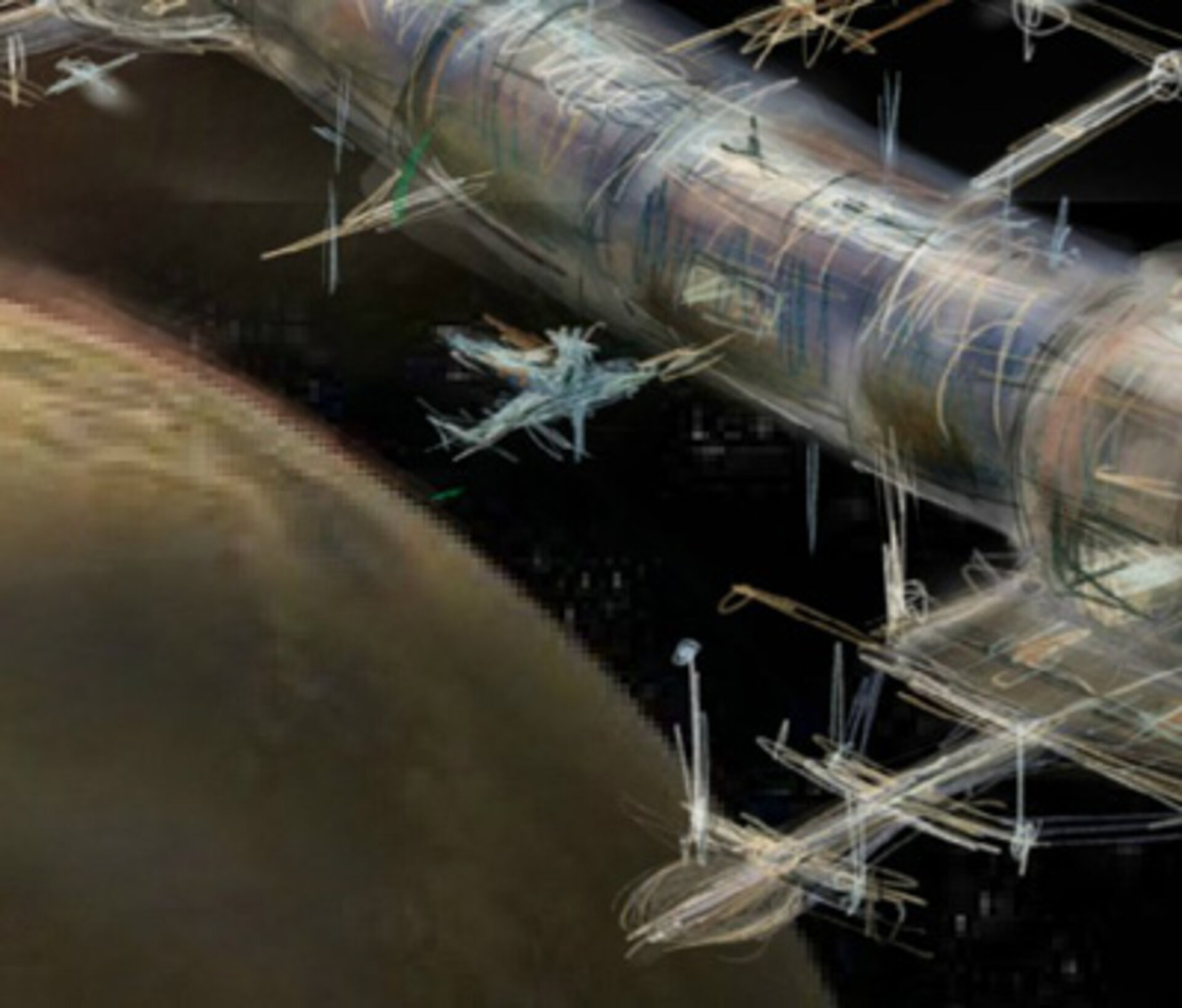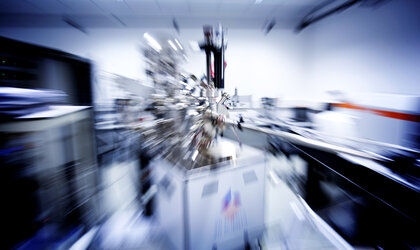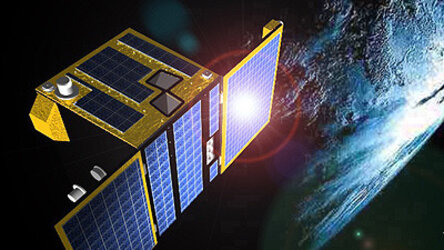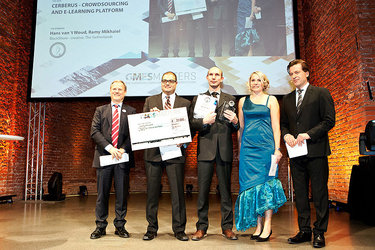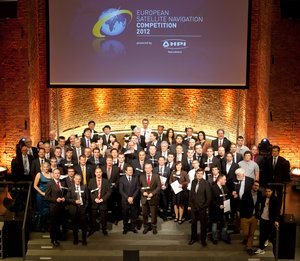ESA-incubated company wins prestigious award
The GMES Master 2012 prize has been awarded to the Dutch start-up company BlackShore from the ESA Business Incubation Centre Noordwijk for its Cerberus gaming project that uses social media to advance Earth observations.
Cerberus is a unique and exciting dual-purpose online gaming platform using satellite maps. Players must identify items they see and by doing so they learn while playing.
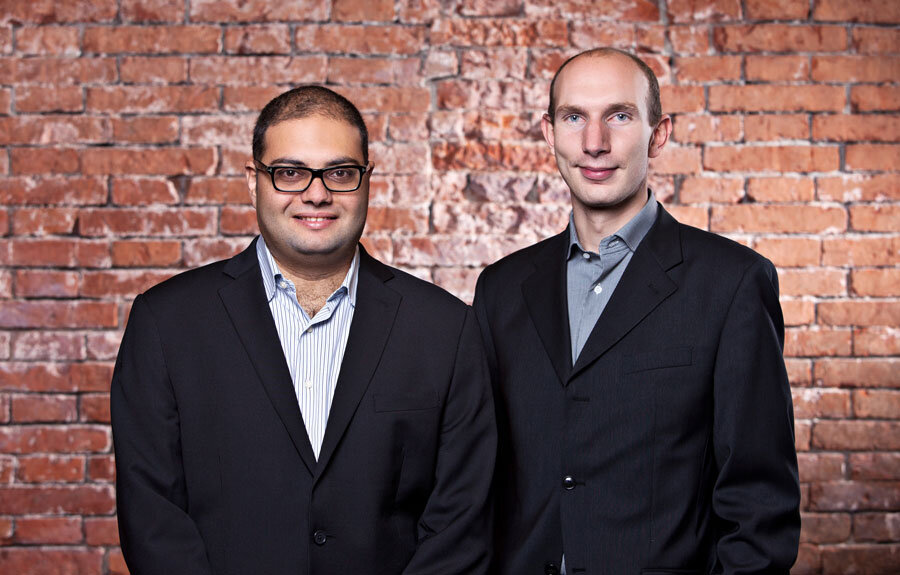
At the same time, behind the scenes, it is a crowdsourcing engine combining all the players’ inputs, accelerating analysis of planetary surface images and generating new enhanced maps.
Out of over 100 innovative business proposals from 20 European countries, Cerberus was selected as the best application and won the GMES Master award at this year’s Global Monitoring for Environment and Security (GMES) Masters competition. It also won the European Space Imaging High-Res Challenge.
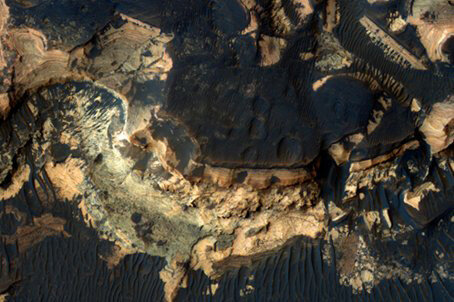
A prototype version of Cerberus is already online mapping the surface of Mars.
“But now it is time to transfer this technology to Earth observation maps,” says Hans van ’t Woud, inventor of Cerberus and BlackShore CEO.
“We will start in 2013 with GMES data. Players will work with satellite images of Earth and mark features such as ice cracks, damaged power cables and areas of drought.
“Their game input will be translated into map layers to be used, after verification, by governments or others.” A prototype version of Cerberus is already online mapping the surface of Mars.
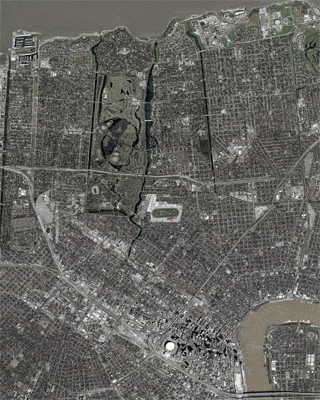
Because players get to play with real photographic data and have to mark what they observe, they automatically become aware of what the images show.
“Cerberus with its crowdsourcing technology can also be used in environmental situations. Accurate mapping of the flooding and damages in a case like Hurricane Katrina in 2005 could be done by joining thousands of players using detailed satellite images,” says Hans.
“Sitting anywhere in the world but working together over Cerberus, they could easily cover a surface area of 900 sq km, almost the size of New Orleans, in less than 24 hours.
“Their outcome, very detailed maps, could rapidly be created and passed to emergency services helping them in their work.”
Gaming improves environmental understanding

“When playing with photographs of glaciers, flooding or rainforests, our players get involved in what is happening on Earth. They add observations enhancing the maps, learn at the same time and help others understand more,” explains Hans.
“We hope this makes them more aware of the beauty and fragility of our Earth, and get them to improve their own environmental behaviour.”
BlackShore is hosted at ESA Business Incubation Centre Noordwijk, part of the Agency’s Technology Transfer Programme.
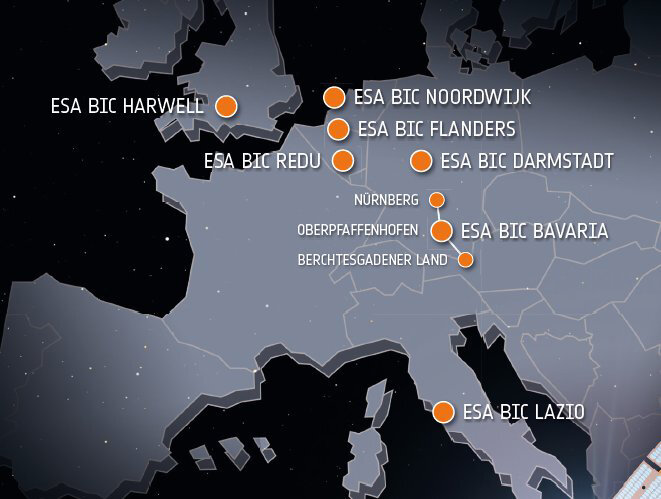
“Here we have access to essential networks in our current start-up phase. Most important for our development is that we can get help from ESA’s experts on satellite data,” says Hans.
“Then being here with other entrepreneurs we exchange knowhow on how to run a company best. Also we get economic support and logistics possibilities.”
The GMES Masters competition was created in 2011 by ESA, Bavarian Ministry of Economic Affairs, DLR German Aerospace Center and T-Systems, and is supported by the European Commission. It is run by German Anwendungszentrum Oberpfaffenhofen.
ESA’s Technology Transfer Programme Office (TTPO)
The main mission of ESA's Technology Transfer Programme is to facilitate the use of space technology and systems for non-space applications, and thereby also further demonstrating realising the benefit of the European space programmes to the citizens.
ESA TTPO is responsible for defining the overall approach and strategy for the transfer of space technologies and systems, including the incubation of start-up companies at ESA business incubation centres and related funding.
The office has transferred over 260 technologies since the programme start and is supporting directly and indirectly around 100 new start-ups a year. TTPO has also initiated as a limited partner the Open Sky Technology Fund, a €100 million venture fund which invests in start-ups using space technology.
For more information on TTPO, please contact:
ESA’s Technology Transfer Programme Office
European Space Agency
Keplerlaan 1
2200 AG, Noordwijk
The Netherlands
Tel: +31 71 565 6208
Email: ttp@esa.int
Web: www.esa.int/ttp


